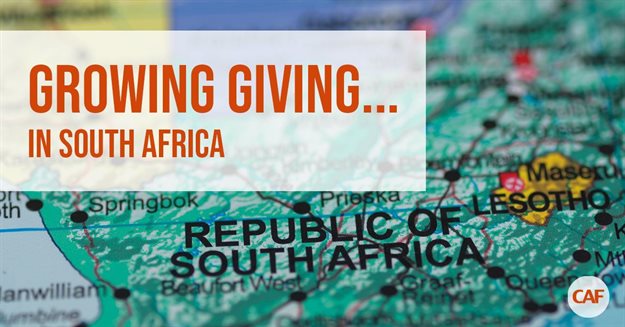
Commissioned by the Charities Aid Foundation (CAF) in partnership with CAF Southern Africa (CAFSA), the Aga Khan Foundation, the CS Mott Foundation and the UK National Lottery Community Fund, the research shows that people give away 35% of their monthly income to individuals or charitable organisations.
But although the ideology of ubuntu drives a thriving culture of generosity and a willingness to help both family and strangers alike, there is also a clear need for organised charities to raise their profile and prove that they are putting donations to good use.
The study built on previous research by CAF into the potential for charitable giving by the estimated 2.4 billion people set to join the world’s middle classes by 2030. Estimates suggest that were members of the growing middle classes to give just over 0.5% of their spending, as much as $319bn could be raised worldwide to support charities and strengthen organisations that speak up on behalf of society’s most vulnerable.

Says Gill Bates, chief executive of CAF Southern Africa: “It’s truly humbling that we South Africans give more than a third of our income to family, friends, members of our communities or to charities.
“This report could not be timelier. While South Africa might be the second strongest economy on the African continent, challenges of poverty, inequality and unemployment remain. We need robust and trusted civil society organisations and advocates who can run with the baton and ensure South Africa’s poorest – our most vulnerable – have a voice in our society.
“To get there, we need to earn the trust of the growing number of people who are in a position to donate a portion of their hard-earned money to the non-profit sector. Our strong foundation of ubuntu unifies us all and this report reminds us of our deep-rooted willingness to give to our families, friends and – perhaps most importantly – to strangers in their time of need.”
The report also found:
CAF head of research, Susan Pinkney, who led the research, said of the findings: “This research has provided us with valuable insight into how South Africa’s growing middle class views charity and how we can work to strengthen local giving and see organisations at both a community and national level take a bigger leadership role in order to not just increase giving, but to strengthen the country’s democratic pillars.”
The CAF World Giving Index 10th anniversary report, released in October 2019, found that three of the top 10 most improved countries for charitable giving over the course of the study were in Africa; Kenya came second, South Africa sixth and Rwanda eighth. South Africa and neighbouring countries posted world-leading numbers of people reporting that they had helped a stranger in the last four weeks – one of three key measures of a country’s generosity.